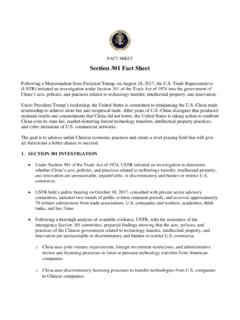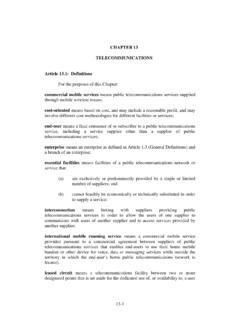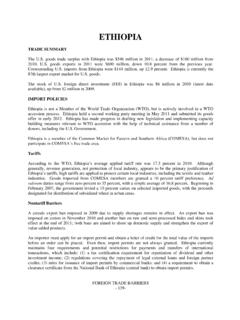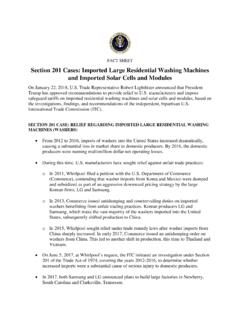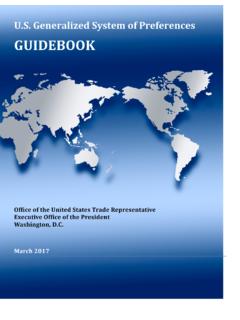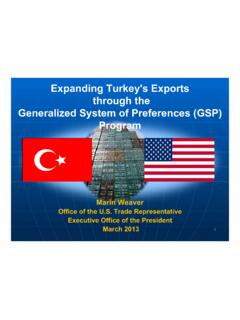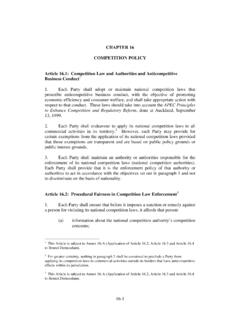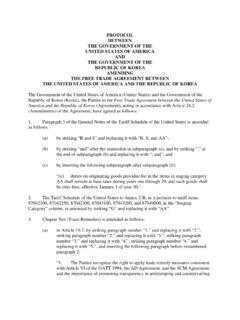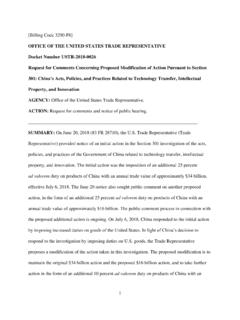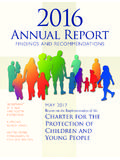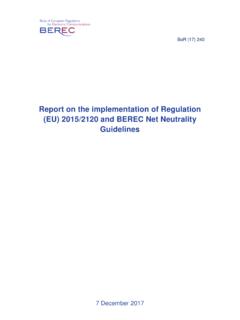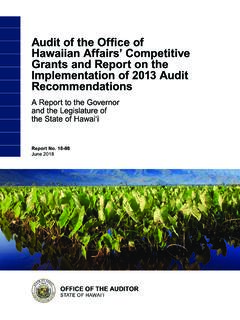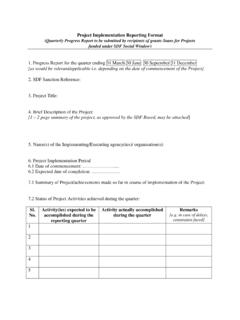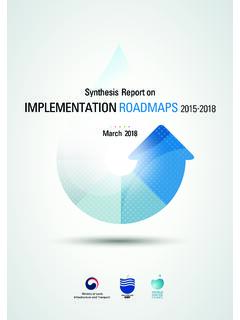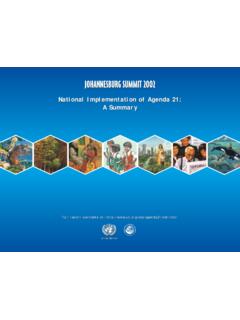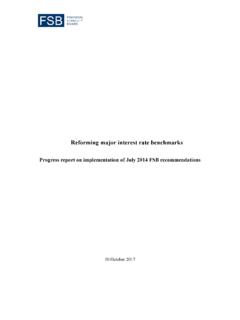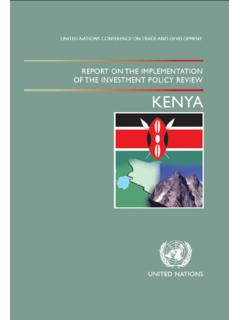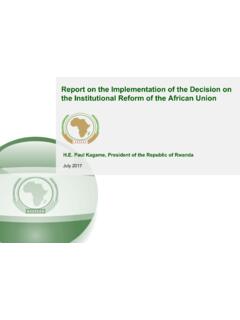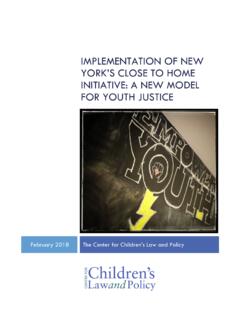Transcription of wheatFFEECec 2017 Report on the Implementation …
1 wheatFFEECec United States Trade Representative December 2017 2017 Report on the Implementation and enforcement of russia s WTO Commitments i Implementation and enforcement of russia s WTO Commitments Contents I. Introduction .. 1 II. Executive Summary .. 2 III. russia and the Customs Union/Eurasian Economic Union .. 6 IV. russia in the World Trade Organization .. 7 V. Import Regulation .. 7 A. Tariffs and Border Fees .. 7 B. Customs 10 C. Customs Valuation .. 10 D. Trading Rights .. 11 E. Quantitative Restrictions .. 12 F. Import Licensing .. 13 G. Trade Remedies .. 14 VI. Export Regulation .. 16 VII. Agriculture .. 17 A. Sanitary and Phytosanitary Measures .. 17 B. Domestic Supports and Export Subsidies .. 24 VIII. Internal Policies Affecting Trade .. 25 A. Non-Discrimination .. 25 B. Industrial Policy, Including Subsidies .. 27 C. State- Owned, Controlled, and Trading Enterprises.
2 29 D. Pricing Policies .. 31 E. Standards, Technical Regulations and Conformity Assessments .. 32 F. Government Procurement .. 35 IX. Services .. 36 A. Financial Services .. 37 B. Telecommunications .. 38 C. Computer and Related Services .. 39 D. Distribution Services .. 39 ii E. Audio-Visual and Media Services .. 40 X. Intellectual Property Rights .. 40 A. Legal Framework .. 41 B. enforcement .. 43 XI. Investment .. 46 A. Trade-Related Investment Measures .. 46 B. Special Economic Zones .. 49 XII. Rule of 49 A. Eurasian Economic Union .. 50 B. Transparency .. 50 C. Judicial Review .. 52 XIII. Conclusion .. 53 1 I. Introduction russia became a Member of the World Trade Organization (WTO) on August 22, 2012, 19 years after first applying to join the General Agreement on Tariffs and Trade 1947 (GATT 1947) in During the years leading up to accession, russia adopted numerous measures (laws, regulations, resolutions, decrees, and other directives) to modernize its economy and create a stable business environment.
3 Through the WTO accession negotiation process, WTO Members worked with russia to ensure that russia s legal regime incorporated the key WTO principles of national treatment, most-favored nation (MFN) treatment, transparency, and, more generally, the rule of law. The Report of the Working Party on the Accession of the Russian Federation to the World Trade Organization (WPR), reflecting the results of russia s work and the accession negotiations, discusses the process by which russia became a WTO This Report on the Implementation and enforcement of russia s WTO Commitments (the russia WTO Report ) for 2017 is prepared pursuant to section 201(a) of the russia and Moldova Jackson-Vanik Repeal and Sergei Magnitsky Rule of Law Accountability Act of 2012 ( 112-208) (the Act). This provision requires the Trade Representative, not later than one year after the United States extends permanent normal trade relations (PNTR) to the products of russia , and annually thereafter, to submit a Report to the Committee on Finance of the Senate and the Committee on Ways and Means of the House of Representatives assessing the extent to which russia is implementing the WTO Agreement (including the Agreement on the Application of Sanitary and Phytosanitary Measures and the Agreement on Trade-Related Aspects of Intellectual Property Rights) and the progress russia has made in joining the Information Technology Agreement (ITA) and the Agreement on Government Procurement (GPA).
4 In addition, to the extent that the Trade Representative believes that russia is not fully implementing its WTO commitments or not sufficiently progressing to join the ITA and the GPA, the Report is to describe the actions that USTR plans to take to encourage russia to 1 In 1994, russia s GATT Working Party was transformed into a working party on its accession to the WTO. 2 The WTO Agreement comprises the Marrakesh Agreement Establishing the World Trade Organization as well as its annexed covered agreements. 2 improve its Implementation of its commitments or increase its progress toward acceding, as the case may be. The 2017 russia WTO Report is also prepared pursuant to section 201(b) of the Act that requires that the Trade Representative submit annually a Report to the Committee on Finance of the Senate and the Committee on Ways and Means of the House of Representatives describing the enforcement actions taken by USTR to ensure russia s full compliance with its obligations as a Member of the The 2017 russia WTO Report thus provides an assessment of the extent to which russia is implementing its WTO commitments, an enumeration of the steps USTR has taken to enforce those commitments, and a description of the actions USTR plans to take in the coming year to press russia to comply with its WTO obligations.
5 In the development of this Report , USTR has drawn on the expertise of numerous individuals who have studied and worked with russia over the years. USTR solicited comments from interested parties, both throughout the year and in the preparation of this Report ,4 and collected information from other Government agencies, particularly the Embassy in Moscow. USTR staff also called on their years of experience studying and analyzing russia s economic policies, including negotiating russia s WTO accession. In addition, on October 10, 2017, USTR hosted a hearing in Washington, DC, before the Trade Policy Staff Committee at which two parties II. Executive Summary Over the past year, russia implemented its scheduled tariff reductions as required by the terms of the WPR. russia has also notified many draft measures to the relevant WTO committees, and occasionally worked with the United States and other WTO Members to address concerns.
6 Unfortunately, these few positive steps are the exception, not the rule. As shown in this Report , 3 In addition, the Trade Representative and the Secretary of State are required to submit annually to the same committees a Report that describes the actions the agencies have taken to promote the rule of law in russia and that discloses the status of any pending petition for espousal filed with the Secretary of State by a investor in russia . That Report will be submitted separately. 4 See Appendix 1 for list of parties who filed public comments. 5 See Appendix 2 for a list of witnesses that testified at the hearing. 3 russia has done little in 2017 to demonstrate a commitment to the principles of the WTO or to many of the specific commitments that it made in the WPR. Importing into russia remains a difficult task.
7 Notwithstanding some positive movement by russia on tariffs, the United States continues to watch carefully how russia applies the Eurasian Economic Union s (EAEU) tariff rates to ensure consistency with russia s WTO bound tariff rates. russia s import licensing regime is burdensome and opaque, and its import licensing regime for products with cryptographic capabilities, in particular, restrains exporters ability to export many consumer electronic products to that market. The United States will continue to press russia to address these concerns. exports to russia are likewise hampered by a less than transparent customs legal regime, a situation that may only be exacerbated as russia implements the new EAEU Customs Code. The United States will review the EAEU Customs Code to determine the extent to which it may impact russia s ability to implement its WTO commitments.
8 Although russia appropriately notified its trade remedy laws to the WTO upon accession, the United States will continue to track russia s compliance with ongoing notification obligations and the Eurasian Economic Commission s administration of its trade remedy laws. The United States has also raised concerns about russia s export restrictions. russia has imposed restrictions on exports by retaining export duties or export licenses on certain products, and maintaining a list of so-called important products that could become subject to export restrictions. The United States will continue to analyze russia s export regulatory regime to ensure its consistency with WTO disciplines, and will pursue enforcement actions as appropriate. The agricultural sector continues to be one of the most challenging sectors for exporters. In addition to the import ban on nearly all agricultural goods from the United States and other WTO Members, russia continues to erect barriers to agricultural exports.
9 For example, the United States has raised concerns that russia s sanitary and phytosanitary requirements are not consistent with international standards or based on scientific justification, and require attestations in veterinary certificates that are not based on international standards. The United States has also voiced its concerns with russia s listing requirement for export establishments, veterinary restrictions on low-risk products, and transit bans. The United States has also raised concerns 4 about russia technical regulations, in particular those applicable to alcoholic products and the adoption of certain good regulatory practices. russia s failure to follow WTO norms on these issues is very troubling. The United States has raised concerns about many of russia s industrial policies. Specifically, the United States has focused on certain discriminatory measures adopted by russia , including the application of its recycling fee, the administration of its copyright levy system, and the collection of value-added tax on the distribution of movies.
10 russia provides subsidies to many of its producers, and the United States has pressed for information on those programs to ensure that they are consistent with the relevant WTO disciplines. The United States has also sought information from russia about its pricing policies on natural gas and railway tariffs to ensure that russia is not using such policies to protect its market. The United States, in conjunction with other WTO Members, has repeatedly questioned the expansion and WTO consistency of russia s import substitution policies. Even as initially applied only to government procurement, such policies do not bode well for russia s dedication to the market-opening principles of the Government Procurement Agreement. Moreover, in the past few years russia has expanded its localization requirements to its State-owned enterprises. The United States continues to press russia on these practices in the WTO to ensure that russia meets its WTO obligations.
